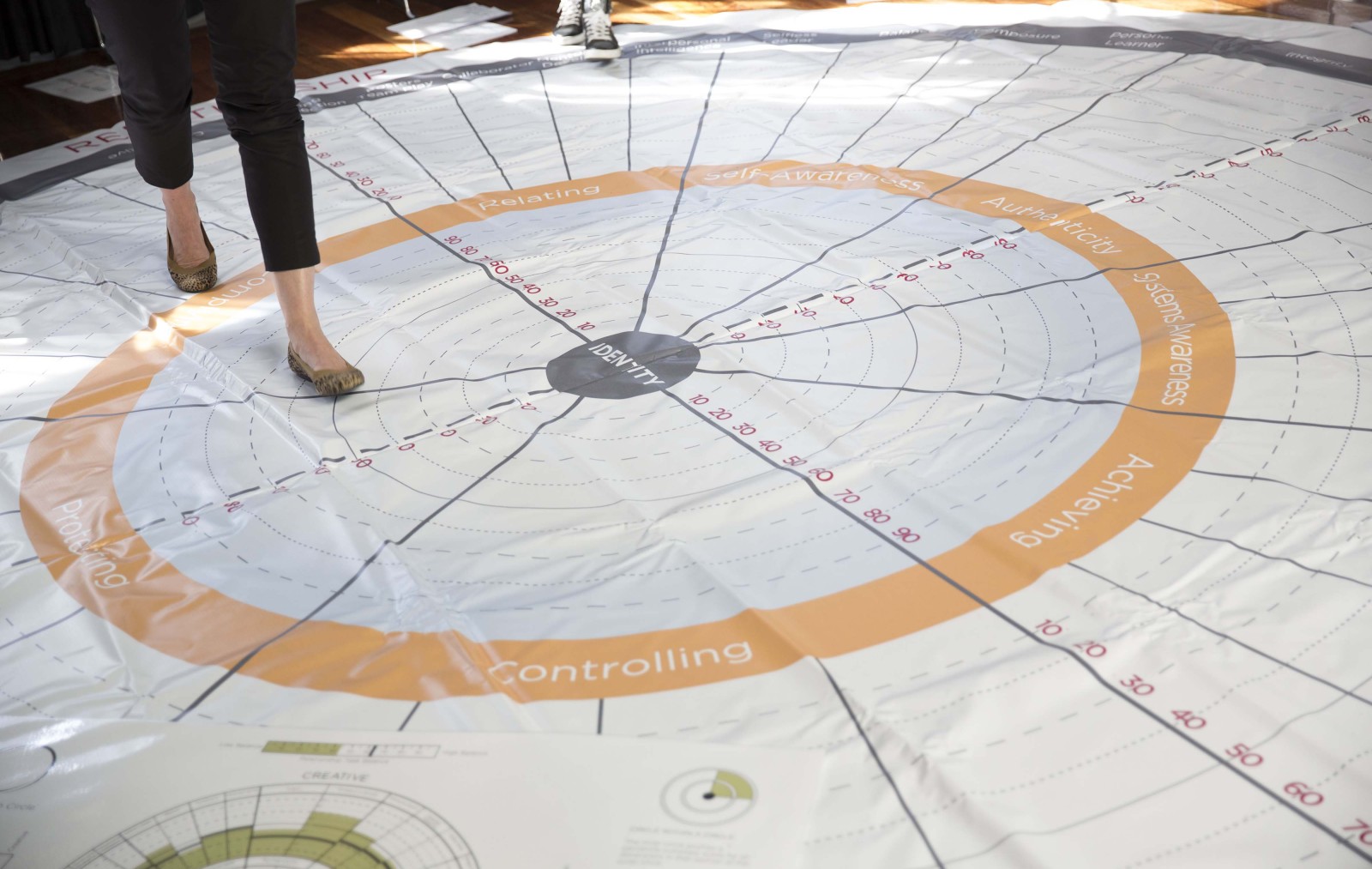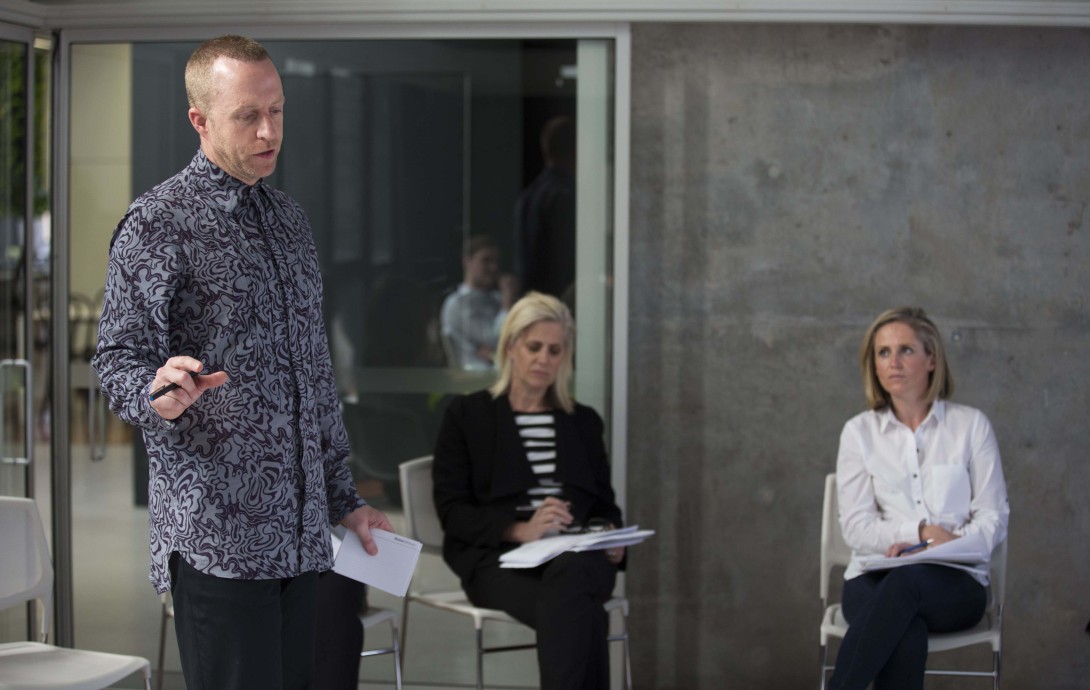
The Dalai Lama School of Management
In the 21st century, everything employers once held dear has radically changed. The old hierarchical and patriarchal paradigm has flipped. Today good management is more about how much employers can invest in their staff, rather than just how much they can take out.
It’s also increasingly about collective leadership. Men and women working in harmony at all levels. It’s about decentralised leadership and an era of self responsibility.
Today we understand that happy and balanced employees build better companies. They give better service and stay longer in their roles. And though most of us spend 50 percent of our lives indoors and at work, only 20 percent of us report being fully engaged.
As we noted in Love and Grit, “happiness at work” is the new aspirational privilege of Western society. So what is the contribution particularly of women in building a better business culture? It seems for enlightenment on this subject we should turn to the East and follow rules promoted by His Holiness The Dalai Lama.
Love
If you want to know how good your business is, then look at the expressions on your staff’s faces. Business culture is not a set of values pinned to a wall. It is not about a dogma. Business culture is what happens between small groups of people when they get together to solve business problems.
Corporate culture is often implied rather than expressly defined. This means culture develops organically over time from the cumulative traits of the leaders in top management. Corporate culture is invisible and intangible in structure and yet, as experts know, culture is the most powerful force that determines business performance.
Bringing consciousness to values is a tremendous first step to getting things right. When organisations have business strategy and people strategy 100% aligned and deliberately chosen values are shared, then the sky’s the limit, according to leadership consultant Maja Stanojevic-Andre from Q3 Intelligence.
“There is very high failure rate in the implementation of strategic programs and plans. You might have the best consultants in the world, devise the best possible strategic plan, for growth or change – but actually, if time is not taken to align culture as well as develop people’s capacity to implement it, it’s just not going to work. You will very quickly realise that what is really running the show is not visible to the eye.”
Maja was a psychiatrist, who fifteen years ago switched to working in Leadership and Organisational Development consulting. Now Maja works with companies to help them develop and integrate their business, leadership and culture strategies together, like three strands of the one rope.
She predicts that companies in the future will shift from a ‘command and control’ style of leadership towards a more ‘collaborative and interdependent’ style of leadership. Being dis-compassionate, robotic, and push, push, push all the time will only get you so far. Maja notes that this new style of leadership, although possible for both men and women, comes more naturally to women.
Compassion
“Businesses need to really embrace, nurture and be grateful for the fact that they have more women in leadership roles working in the business today,” Maja says, raising her eyebrows to an incredible height.
“These women bring more colour, flavour and juice to the business. These strong female qualities are relational, they enrich the perspectives and bring more diversity of thinking to the table. A lot of people may not appreciate it yet, but kindness, care and compassion in the workplace make miracles possible.
“If someone knows that they are important, that they are cared for, that the skills they bring are being recognised, appreciated and developed, and if they feel they matter to those they work for then they will give everything.”
Tolerance of differences
“It about mutual respect between the sexes,” says leadership coach Mike Conway. “It’s no longer about title, ‘you are the head of marketing’ or ‘I am the CEO’, it’s about who the person is. It’s about they bring to the table, and not just their skill set, but their whole person,” he says.
Mike, who is Adjunct Professor at the Macquarie University Graduate School of Management, just interviewed 100 leaders, men and women, to understand more about their style and motivation. “The critical thing I have learnt from seeing both men and women perform as top leaders, is that there is hardly any difference between men and women – and that’s what you want. I am talking about top-tier leadership here. Not just executives, but great leaders – at that level, men and women display similar levels of EQ,” he says, referring to emotional intelligence.
Moving away from ‘command and control’ style of management signifies a changing of the guard and at least a partial break down of the old patriarchy according to Mike and Maja.
Kindness
Maja points out that women can bring a caring touch to the workplace, now that they don’t have to hide their feminine qualities like they did for many years. “In the past if a woman wanted to take a top job she had to adopt male values. In any workplace, if there is fear, and historically in workplaces there was a lot, then workers will spend more time and energy in managing their fear than on their work. This is negative and leads to low productivity,” Maja explains.
She says that research has proven that treating people well and empowering them in their roles brings out the best in employees. Maja notes that these ‘soft skills’ can help transform the old business culture into a new one. And while maternal qualities of encouraging and nurturing people are present in both men and women, women have these qualities more innately.
“The ushering in of this influence is not something that you can just tell to people straight-up. You have to plant the seed and create nurturing conditions for it to grow. Because if you push something before it is ready, it is just like eating tomatoes that have been artificially ripened. You can eat them but there is no nourishment or nutrients,” she says.
Equality of mind
Mike agrees that positive discrimination in the work place (favouring women just for the sake of it) would be a negative outcome for leadership and business culture. “The risk is if you go overboard as an organisation promoting women – you rush people into position when they are not ready for it. Mike says to throw away the rule book and start again when creating teams, because the hard metric today is emotional intelligence.
“If you look at the strengths of great leaders or where leaders are likely to evolve from, then emotional intelligence is the critical piece. It is very different from when I was kid. When I was a kid, you would have be measuring IQ not EQ, I would say today EQ is the hard metric” he says.
Empathy
“When you talk about leadership there’s little to separate the true greats,” Mike continues describing his recent interviews with great women in sport, business and entertainment. “Take Ronni Kahn from the pioneering food charity Oz Harvest for example. Ronni is a strong person and you need that strength to start something from scratch like she has done. But she has got something else that you find when you analyse emotional intelligence – a trait that women tend to have a bit more of than men – and that’s empathy.”
BresicWhitney’s Head of People and Culture Belinda Carter thinks women have a positive effect on business decisions and provide balance in the workplace. “Women bring to the workplace a diversity in thinking and approach. Also more humility. Women are good at managing complexity and identifying interdependencies.
“The women in our management team all come from differing professional fields. So our contribution is to challenge accepted ideas or approaches because of our professional background first and foremost. I would also suggest that all women in leadership roles at BresicWhitney see ourselves first as professionals, and secondly as women,” she says.
According to Belinda, nature and nurture also play a role. Maja says joining together and connecting is a strong female gift in the work place. “Collaborative work culture comes easier to women than to men. This comes down to our innate biology to bring life and sustain life. But men are also capable of it – if they connect and acknowledge their feminine energy,” she says.
Maja insists organisations that want to attract brilliant women need to start by appreciating their presence and view point. “As women, we also have to become more comfortable relaxing into our natural state, after many years of repressing our feminine values and energies.” She observes that feminine values are wanted and needed in the work place right now, noting that it is those businesses which actively hire from different backgrounds and genders who will become stronger in the long run.
As feminist icon and writer Gloria Steinem points out, all the social movements are linked. Whether people experience discrimination based on their age, gender, race, or sexual preference it does not matter. The outcome is negative and instills fear.
Any society or business that diminishes its own constituents allows the skills and talents of the subset to lie untapped. Looking to the future, it seems the smart money is on integrating The Dalai Lama School of Management. Showing kindness, care and compassion and practicing non-attachment to the old ways of ruling the mob.












